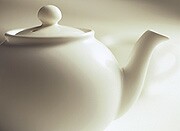
THURSDAY, March 14 (HealthDay News) — Many people take coffee or tea breaks throughout the day, and that simple act may help them reduce their risk for stroke, Japanese researchers report.
This study of about 83,000 people suggests that drinking green tea or coffee daily might lower stroke risk by about 20 percent, with even more protection against a specific type of stroke.
“The regular action of daily drinking [of] green tea and coffee is a benefit in preventing stroke,” said lead researcher Dr. Yoshihiro Kokubo, chief doctor in the department of preventive cardiology at the National Cerebral and Cardiovascular Center, in Osaka.
“If you cannot readily improve your lifestyle, try to prevent stroke by drinking green tea every day,” he said.
Although it isn’t certain why coffee and tea may have this effect, Kokubo thinks it might be due to certain properties in these drinks that keep blood from clotting.
In addition, green tea contains catechins, which have an antioxidant, anti-inflammatory effect. Some chemicals in coffee, such as chlorogenic acid, may cut the risk of stroke by lowering the chances of developing type 2 diabetes, he explained.
Coffee also contains caffeine, which may have an impact on cholesterol levels and blood pressure, and may cause changes in insulin sensitivity, which affects blood sugar, he added.
One expert, Dr. Ralph Sacco, past president of the American Heart Association, cautioned that this type of study cannot say for sure that the lower risk of stroke is really the result of drinking coffee or tea.
“Such association studies are still limited in [the] ability to tell whether it is some ingredients in the coffee or tea or some other behavior common to coffee and tea drinkers that is driving the protective effects,” said Sacco, chairman of neurology at the University of Miami Miller School of Medicine.
“There have been other studies, however, that have suggested some beneficial effects of coffee and tea on brain health, so the evidence is accumulating that there are some important simple dietary ways we can improve our health,” Sacco said.
The report was published online March 14 in the journal Stroke.
For the study, Kokubo’s team collected data on roughly 83,000 men and women, 45 to 74 years old, asking about how much green tea and coffee they drank.
Over the course of the study, the researchers kept track of hospital records, death certificates and data about deaths from heart disease and stroke.
During an average of 13 years of follow-up, they found that those who had at least one cup of coffee a day lowered their risk for stroke about 20 percent.
And, compared to people who rarely drank green tea, people who drank two to three cups a day had a 14 percent lower risk of stroke and people who drank at least four cups lowered their risk by 20 percent.
The risk for a type of stroke called a hemorrhagic stroke, in which a blood vessel in the brain bursts and blood floods part of the brain, was cut by 32 percent among those who drank a cup of coffee or two cups of green tea daily. About 13 percent of strokes are hemorrhagic strokes, the researchers noted.
To be sure their findings related to coffee and tea, Kokubo’s group took into account factors such as age, sex, smoking, alcohol, weight, diet and exercise. People who drank green tea were more likely to exercise compared to non-drinkers, they noted.
More information
To learn more about stroke, visit the U.S. National Library of Medicine.

